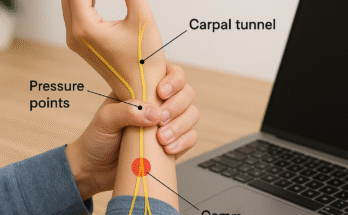Understanding Hand Tremors: Causes, Prevention, and How to Stay Steady
Hand tremors—those small, involuntary shakes in your fingers or hands—can feel like uninvited guests at the most inconvenient moments. Whether you’re holding a cup of coffee, signing a document, or simply resting your hands, these subtle quivers might leave you wondering: Why is this happening? While often harmless and temporary, hand tremors can sometimes hint at deeper factors worth exploring. Let’s unravel the mystery behind shaky hands, learn how to manage them, and reclaim your confidence.
What Are Hand Tremors?
Hand tremors are rhythmic, involuntary muscle contractions that cause shaking in the fingers or hands. They often appear during precise movements, like holding an object with your fingertips or writing, especially if your wrist isn’t supported. While rarely a sign of serious illness, tremors can be categorized into two common types:
-
Action Tremors: Occur when using your hands for tasks like gripping or writing.
-
Resting Tremors: Persist even when your hands are relaxed, such as resting on a table or in your lap.
Most tremors are temporary and resolve on their own, but understanding their root causes is key to addressing them.
Why Do My Hands Shake? Uncovering the Triggers
From genetics to lifestyle habits, several factors can spark hand tremors:
-
Genetics: A family history of tremors may predispose you to similar symptoms.
-
Blood Sugar Crashes: Sudden drops in glucose levels can trigger shaking, dizziness, or thirst.
-
Alcohol Use: Chronic alcohol consumption or withdrawal can destabilize nerve function.
-
Fatigue: Physical or mental exhaustion strains the nervous system.
-
Stress and Anger: Intense emotions flood the body with stress hormones, leading to temporary tremors, dry mouth, or speech difficulties.
-
Thyroid Imbalance: Overactive or underactive thyroid glands disrupt hormone levels, affecting muscle control.
Prevention: Staying Ahead of the Shakes
While some causes, like genetics, require acceptance and adaptation, many triggers can be managed with simple lifestyle adjustments:
1. Fuel Your Body Smartly
-
Keep snacks like nuts, fruits, or dark chocolate handy to combat low blood sugar.
-
Avoid skipping meals—opt for balanced, protein-rich foods to stabilize energy.
2. Ditch the Alcohol
-
Limit or eliminate alcohol to reduce nerve irritation and improve overall health.
3. Prioritize Rest
-
Take regular breaks during work or chores to prevent muscle fatigue.
-
Aim for 7–8 hours of sleep nightly to recharge your nervous system.
4. Thyroid Check-Ups
-
If tremors persist, consult a doctor to rule out thyroid issues. Medication can often restore balance.
5. Tame Emotional Storms
-
Stress and anger are major culprits. Practice grounding techniques:
-
Breathe Deeply: Inhale for 4 counts, hold for 4, exhale for 6. Repeat until calm.
-
Reframe Thoughts: Focus on strengths, not flaws. Everyone has imperfections—build confidence through small achievements.
-
Mindfulness and Faith: Many find solace in spiritual practices or meditation, which foster inner calm and resilience.
-
Mastering Emotional Triggers: From Reactivity to Resilience
Anger and stress don’t just affect your mood—they send shockwaves through your body. When emotions flare, your nervous system goes into overdrive, releasing adrenaline and cortisol. This “fight-or-flight” response can leave your hands trembling, your mouth dry, and your thoughts scattered. Here’s how to regain control:
1. Build Emotional Awareness
-
Recognize early signs of anger: clenched fists, rapid heartbeat, or shallow breathing.
-
Pause before reacting—count to ten or step away from the situation.
2. Strengthen Self-Confidence
-
Engage in conversations, share ideas, and embrace opportunities to lead.
-
Knowledge is power: Educate yourself on topics that matter to you. Confidence grows with competence.
3. Embrace Imperfection
-
Perfectionism fuels anxiety. Accept that mistakes are part of growth.
-
Focus on solutions, not problems. Ask: What can I learn from this?
4. Cultivate Inner Peace
-
Whether through prayer, meditation, or nature walks, find practices that anchor you.
-
Trust in gradual progress—small, consistent steps build unshakable calm.
When to Seek Help
Most hand tremors fade with rest, nutrition, or stress management. However, consult a healthcare provider if:
-
Tremors worsen over time.
-
They interfere with daily tasks like eating or dressing.
-
You notice additional symptoms: weight changes, muscle weakness, or irregular heartbeats.
Final Thoughts: Steady Hands, Steady Mind
Hand tremors might feel unsettling, but they’re often your body’s way of signaling, Slow down. Take care. By listening to these cues—nourishing your body, managing stress, and seeking support when needed—you can reduce shakes and embrace life with steadier hands and a calmer spirit. Remember, confidence isn’t about perfection; it’s about resilience.





